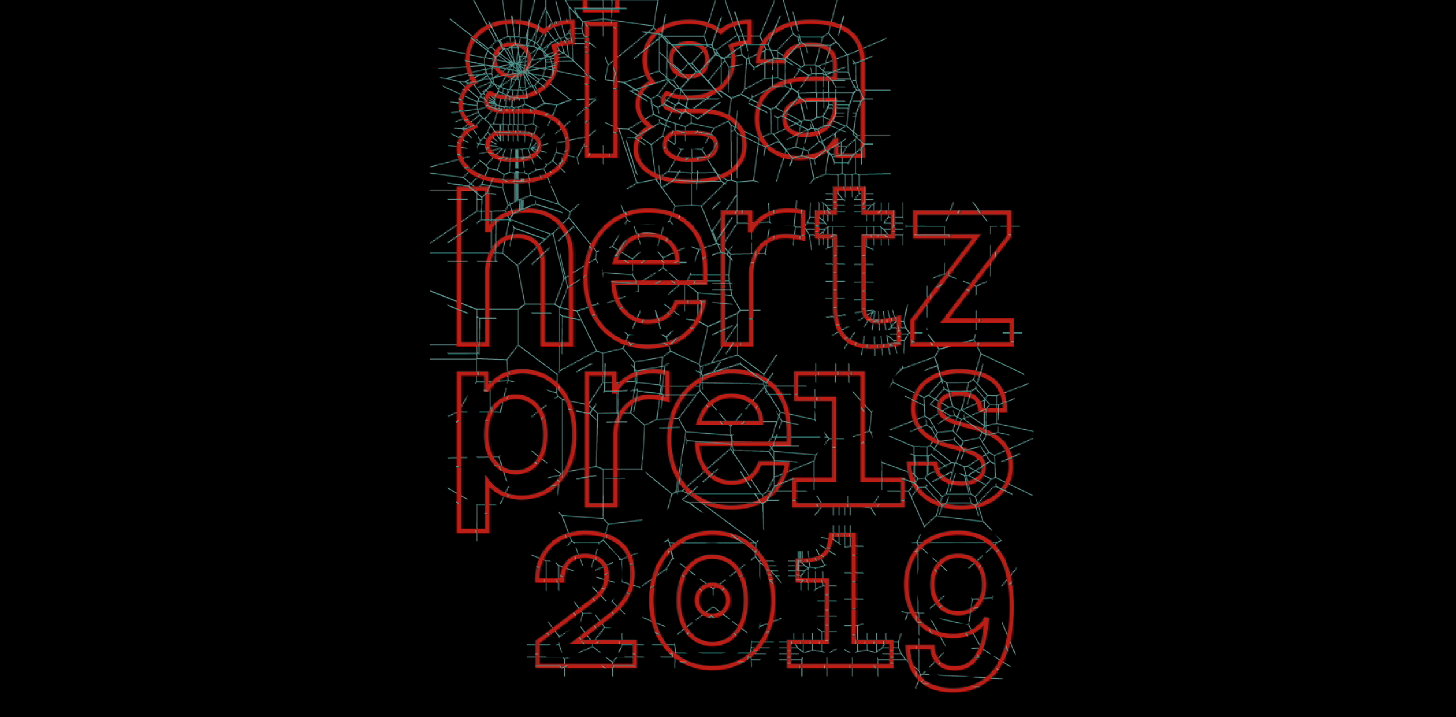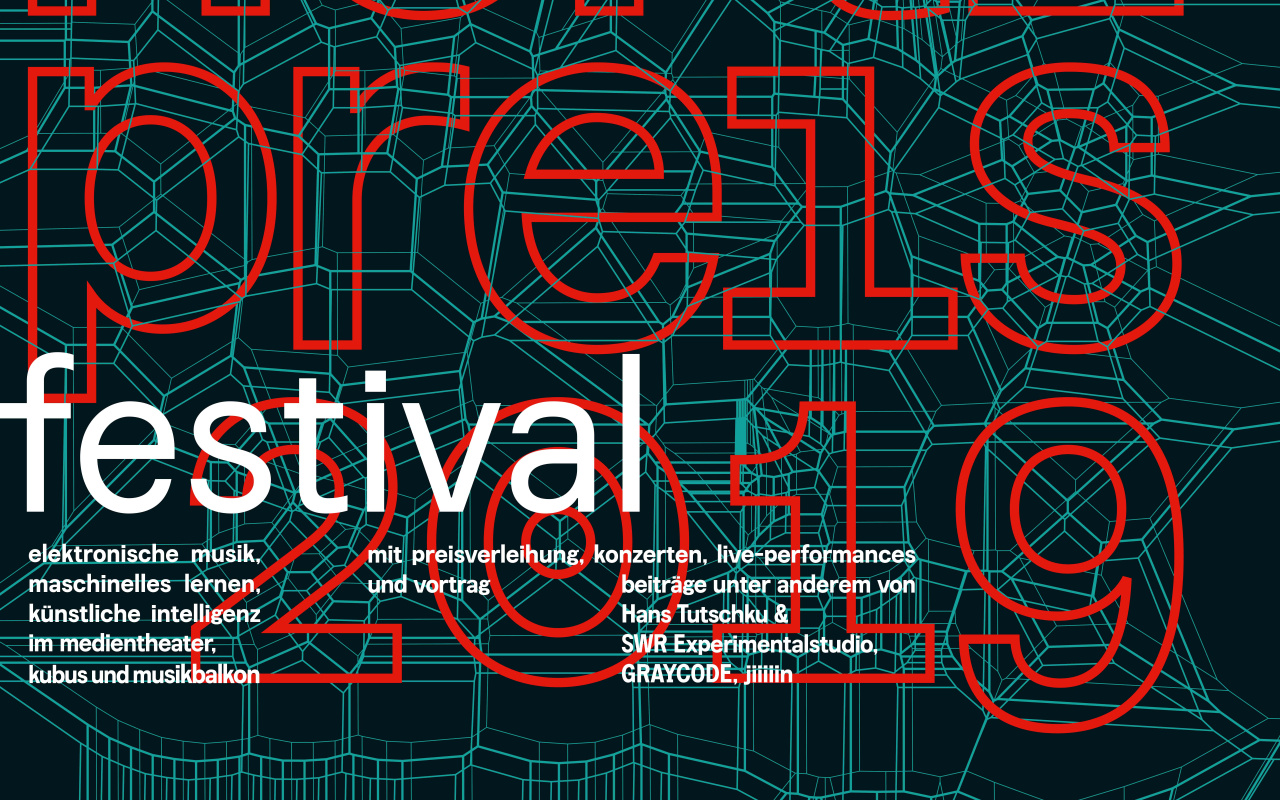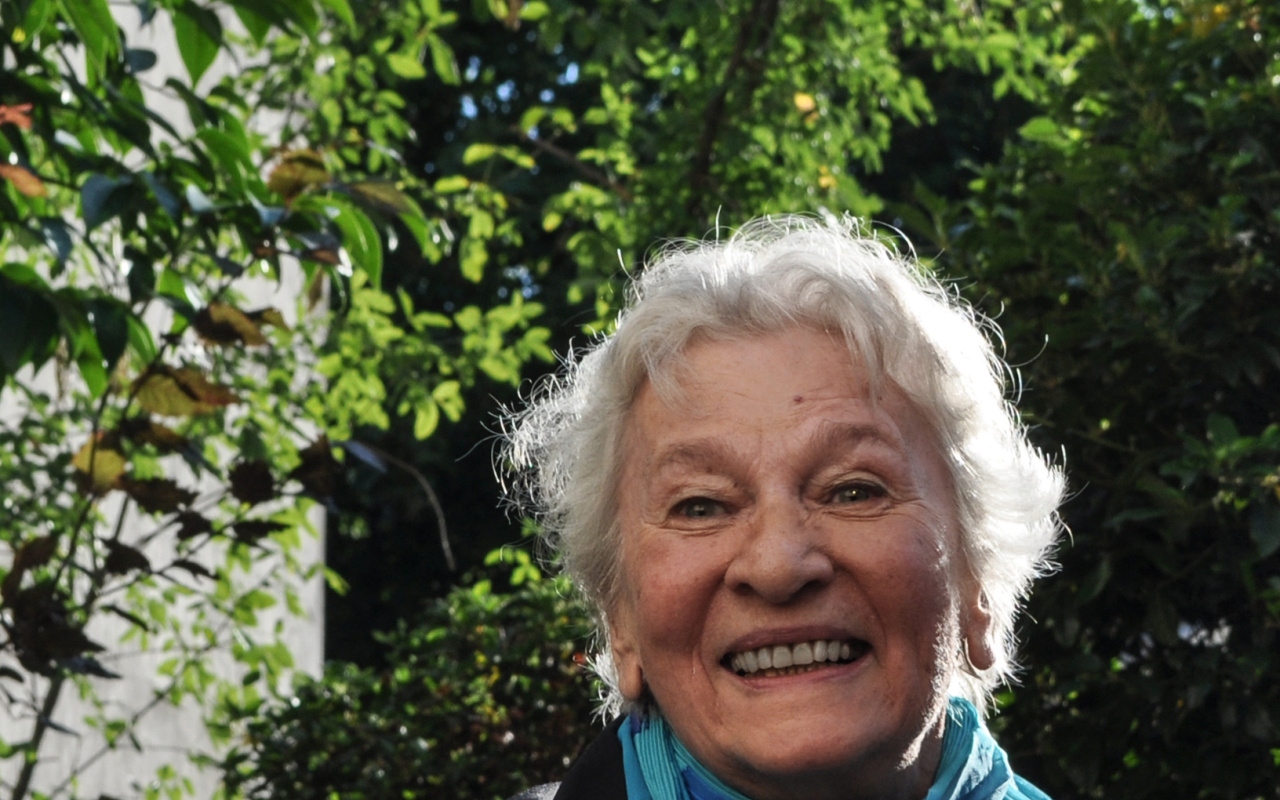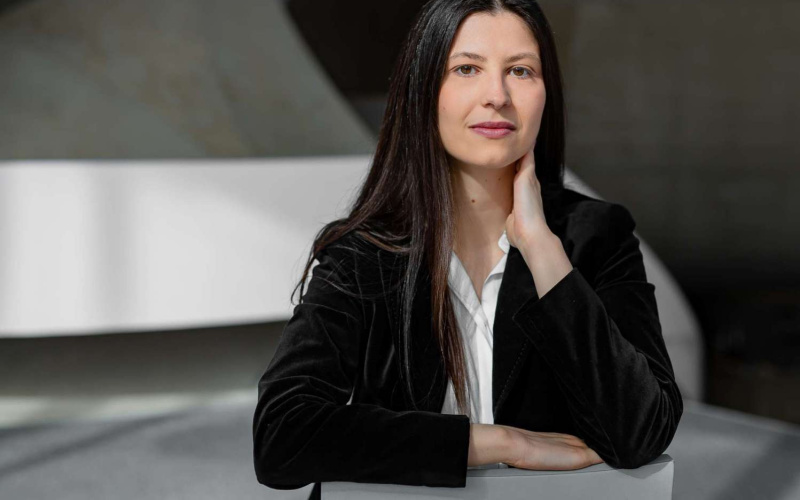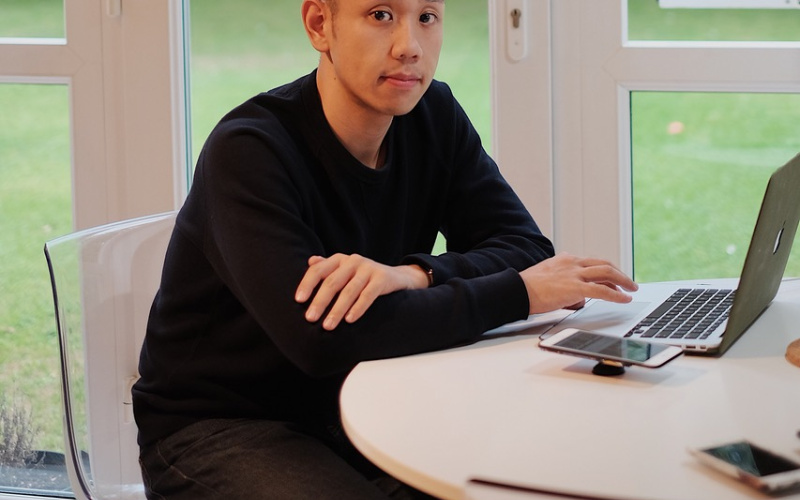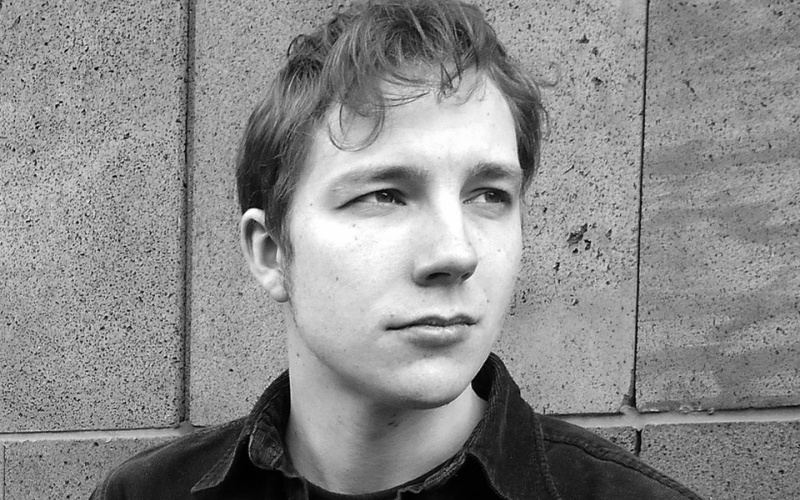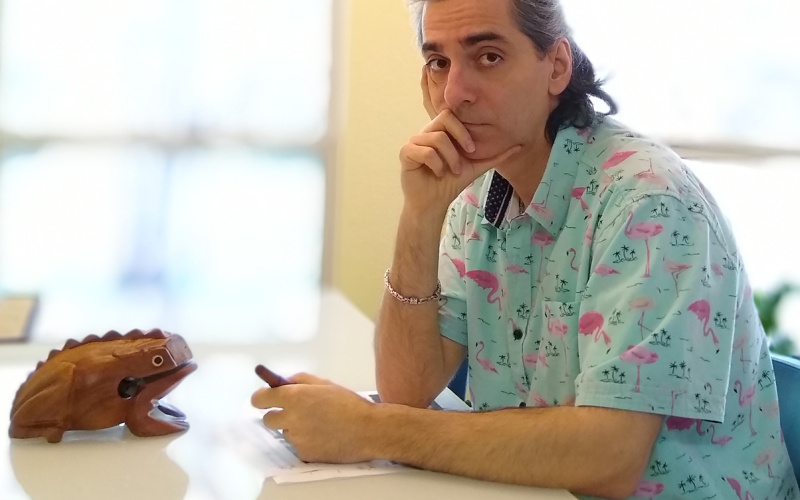- Event
- Festival
Giga Hertz Award 2019
Sat, November 23 – Sun, November 24, 2019
- Location
- Media Theater
- Cube
This year's Giga Hertz Award Festival will take place at the ZKM from 23 to 24 November 2019. The Electronic Music Prize, sponsored by ZKM and SWR Experimentalstudio, will be awarded for the twelfth time this year. Well-known representatives from the international music and art scene are expected to attend the ceremony.
This year, submissions for the Giga Hertz Production Awards focusing on machine learning will be given special consideration. In addition to the festive award ceremony followed by a reception, the award-winning and newly created works of the prizewinners will be performed. The award ceremony will take place on the evening of November 23, 2019 in the presence of all prize winners.
The Giga Hertz Award is dedicated to the world-famous physicist Heinrich Hertz (1857–1894). He taught at the end of the 19th century at the Karlsruhe Technical University (today the Karlsruhe Institute of Technology) and discovered electromagnetic waves there. The aim of the prize is to promote electronic music and to give impulses through new tonal and compositional possibilities.
Preface
-
by Ludger Brümmer
In 2019, the twelfth Giga-Hertz Award of the ZKM will be awarded to innovators in this genre. At the same time as the 30th anniversary of the ZKM, the topic »Machine Learning« was articulated. This topic, which stems from the context of artificial intelligence, is currently in the process of significantly influencing electronic music and electronic media. Many exciting projects have applied for the award this year. In the end, the jury chose five winners. The main award for lifetime achievement honors the work of the French composer Éliane Radigue, for the production awards the jury chose pieces by Honghuo Fan and Artemi-Maria Gioti as well as two honourable mentions for Panayiotis Kokoras and Otto Wanke. Both production award winners pursue strategies with the help of machine learning. Projects that both deal with gesture recognition and take them to a new level while using ML techniques.
With the main prize for Éliane Radigue, the jury chose a radical composer who began as an outsider, but has since enjoyed great success. In the 1950s she worked as a composer in the so-called second generation of electronic music with Pierre Schaeffer and later with Pierre Henry. From there she followed her own path, experimenting and working only with synthesizers for decades. Like Pauline Oliveros and Brian Eno, who had already received the Giga-Hertz main award, Radigue created a new way of listening in her several hours lasting pieces. She also enriched electroacoustic music with a new language of sound.
After the award ceremony on Saturday, don't miss the chance to be captured by the composer's portrait and her latest works on Sunday.
On these two days, in addition to the awardees mentioned above, pieces by GRAYCODE, jiiiiin and Hans Tutschku, who produced new works with the Giga-Hertz Award money from previous years at the Hertz-Lab and SWR Experimentalstudio, will also be presented.
Lifetime Award 2019 | Éliane Radigue (France)
Éliane Radigue's artistic work and her career are characterized by a number of peculiarities which guarantee her a special position among the composers of electronic music. She began her early career after sporadic beginnings in the 1950s in the forerunner of the GRM, the Studio d'Essai of the RTF (Radio Tele France) in Paris, under the direction of Pierre Schaeffer. There she designed sound material for Pierre Schaeffer, although her work with Schaeffer certainly did not enjoy the respect she deserved as an artist.
As one of the few women in the Studio d'Essai she managed to work as a composer despite the difficult circumstances and later to build up an international career. This was mainly due to two important factors. In New York she started first with a Buchla synthesizer and later exclusively with the ARP 2500 modular system and tape techniques. She also became a convinced Buddhist. This led her to a style of music in which long sound courses, sound surfaces with the smallest changes, provoked an almost meditative listening posture. The three-hour work »Trilogie de la Mort« composed between 1990 and 1998 became one of her most famous works.
The jury was convinced by Éliane Radigue's consistent and continuous compositional achievement, which approaches the smallest degrees of change like a microscopy of time and sound.
– Author: Ludger Brümmer
Program
Program
- ghp_ph_2019_de.pdf (1.83 MB)
Project Team
Ludger Brümmer (Artistic Director)
Sophie Caecilia Hesse (Project Organisation & Production Lead)
Sebastian Schottke, Simon Klumpp (Sound Engineers)
SWR Experimentalstudio (Live-Eletronic Realisation)
Thomas Hummel, Hans Tutschku (Sound Direction)
Hans Gass, Manuel Weber (Light-/ Event Technicians)
Christian Berkes, Marco Kempf, Jakob Schreiber, Manuel Urrutia (Support Light-/ Event Technicians)
Sergiy Ptushkin (General Support)
Jury
Ludger Brümmer (Composer, Head of ZKM | Hertz-Lab)
Rebecca Fiebrink (Professor for »Computing« at Goldsmiths University of London)
Palle Dahlstedt (Composer, Professor for »Art & Technology« at Aalborg University)
Björn Gottstein (Musicologist, Artistic Director of the Donaueschinger Musiktage)
Detlef Heusinger (Artistic Director of SWR Experimentalstudio)
Peter Weibel (Artistic Director of ZKM | Karlsruhe)
